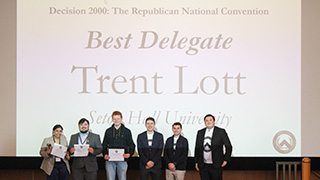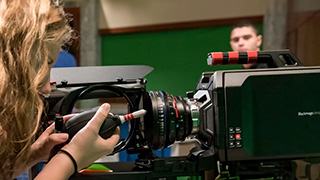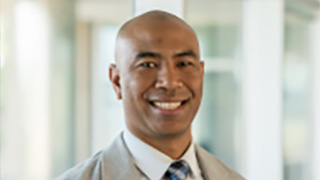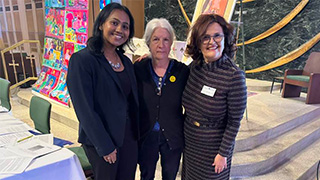CCRE’s Service-Learning Programs Continue to Gain International Attention
Thursday, October 20, 2022
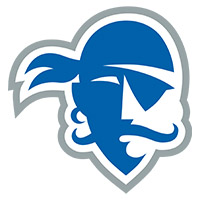
CCRE Director Timothy Hoffman
Timothy Hoffman ‘15/M.P.A. ’16, Director of Seton Hall University’s Center for Community Research and Engagement (CCRE), presented at the 51st Annual Conference for the Society for Experiential Education, which was held in Salt Lake City, Utah.
The Society for Experiential Education, which is composed of educators, businesses, and community leaders, was founded in 1971 to cultivate educators who effectively use experiential education as an integral part of personal, professional, civic, and global learning. On September 28, 2022, Hoffman presented a session titled "Service-Learning AC (After COVID): Where Do We Go From Here?", where he highlighted the work that the Center for Community Research and Engagement was able to achieve during the COVID-19 pandemic. This followed a workshop offered by Hoffman at the University of Nicosia in Cyprus in June.
The COVID-19 pandemic presented many challenges for universities implementing experiential opportunities for students, particularly in the realm of service-learning. Through the Center for Community Research and Engagement, Seton Hall University was a leader in providing service-learning opportunities for students during the pandemic. Through service-learning being incorporated into courses in the University Core, 445 students participated in completely virtual service opportunities during the 2020-2021 academic year and over 500 students participated in service-learning through programs with CCRE in 2021-2022 through a hybrid model for service-learning.
Hoffman’s presentation highlighted Seton Hall’s successes, lessons learned, and provided a visioning opportunity for participants to brainstorm ways other universities could implement the CCRE’s innovative approach to service-learning. Participants also discussed the future of remote service-learning programs as universities return to offering mostly in-person opportunities. Hoffman’s presentation modeled how the CCRE developed remote partnerships with over 25 organizations during the pandemic, while continuing its longstanding commitments to local community partners in Newark, NJ and demonstrated how some service-learning programs actually worked better in a remote environment. Hoffman explained "we had several programs where remote service eliminated geographic barriers and opened up opportunities for students to engage in meaningful dialogue with people all across the world".
Hoffman also indicated that remote programs that were created during the pandemic allowed the CCRE to successfully increase the number of students and community partners that they worked with annually. "This allowed us to provide some really innovative opportunities for students to engage with the community while also giving students and faculty the ability to make connections to what is being discussed in the classroom. Students were able to really reflect on their experiences from trying to help the community in a meaningful way during such a difficult time for all", said Hoffman.
The CCRE, founded in 1997, operates out of the College of Arts and Sciences and coordinates the activities of the University as it implements service learning and community-based research on campus. To learn more about service learning and the CCRE, click here or contact Timothy Hoffman at [email protected].

